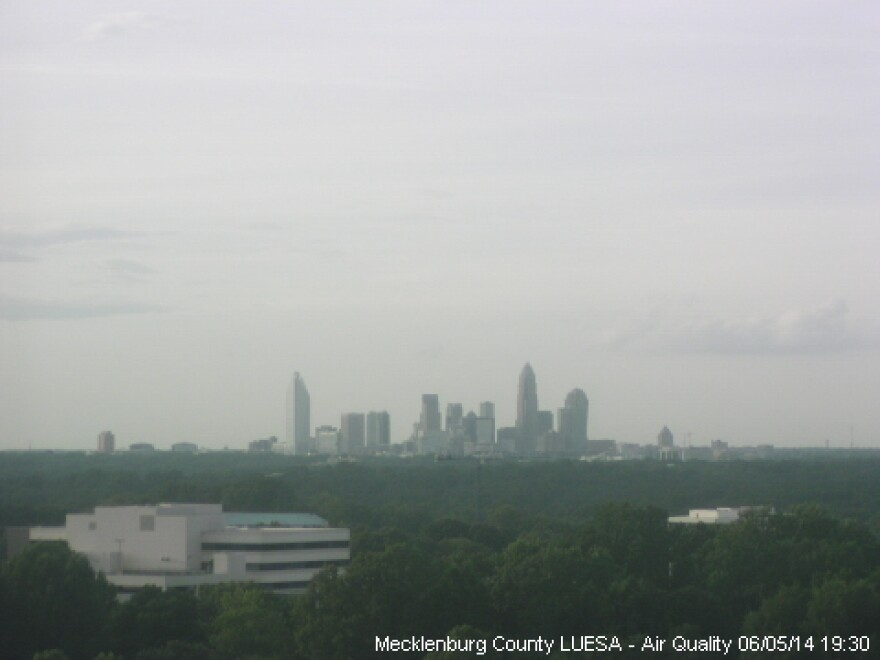About a month into this legislative session, North Carolina lawmakers are keeping up last year’s torrid pace. One bill currently making its way through contains dozens of changes to state laws from A to V. That’s Air Quality to Venomous Reptiles.
The Regulatory Reform Act of 2014 is 65 pages long. It’s the fourth such bill in as many years, designed, the sponsors say, to trim onerous regulations.
Some changes are innocuous, like Section 2.6 removes a fee for oyster permits.
Some are funny—Section 3.22 officially a law against swearing on the highway.
Others remove language from last year’s version, for instance a ban that prevented counties from enacting any stronger environmental laws than the state.
Mecklenburg County’s liaison with state lawmakers, Brian Francis, lobbied for that repeal.
“There are 100 counties in North Carolina; each face different environmental situations,” says Francis. We think it’s appropriate that each county be able to have in place the regulations that their people want.”
But many of the sections pare down current environmental regulations. Mary MacLeanAsbill, a senior attorney at the Southern Environmental Law Center, says together, those provisions are a concerted attack.
“This bill is sort of the culmination of what we’ve been seeing happen in the North Carolina state legislature for the last three sessions,” says Asbill. “There is an anti-environmental attitude, and it seems to escalate each year.”
Air, water, and wetlands
Section 3.9 removes any of the state’s outdoor air quality monitoring stations not required by the federal government.
Section 2.2 limits objections to air pollution permits. Right now, legal objections—whether from regulators, the requestor, or third-parties such as neighbors or environmental groups—halt the process while a judge considers them. The bill changes that, Asbill says.
“If you or I were to challenge a permit, by the time we got through the case, the facility would already have been built or the new operation would already have started, and no judge is going to take that away from a corporate entity,” says Asbill.
It also prevents third-party objections, unless the permit would violate federal air quality standards, rather than state or local standards.
None of the bill’s sponsors agreed to an interview, but they said in a press release, “The bill streamlines the environmental permitting process and eliminates avenues for frivolous legal roadblocks to make it easier for citizens and businesses to attain needed permits. And it removes many ambiguous, onerous and obsolete regulations that increase the burden and expense on North Carolina families and job-creating businesses, but do little to serve the public interest.”
Another section cuts protection of isolated wetlands—small patches of wetland, unconnected to other water bodies. The bill would let developers raze up to an acre before stricter regulations would kick in, instead of the current one-third or one-tenth of an acre.
Another provision would protect companies from fines or lawsuits if they have leaking pollution, but find it during their own investigation and fix it. It seals the audit documents from civil and administrative court cases and blocks the audit conductors from having to testify in court. The bill’s press release argues it encourages businesses to be more transparent and take environmental responsibility.
Beer
Another section allows students at community colleges to sell beer they brew in class.
Four community colleges across the state are starting up brewing programs: Nash, Rockingham, Blue Ridge, and Asheville-Buncombe Tech. Nash’s chief academic officer Trent Mohrbutter says the program, and the ability to sell, will help students find jobs.
“If a group of students produce a brew and have people sample or even a group of individuals could purchase what they’ve produced, I don’t know that we can put a dollar figure on that, in terms of what that means to students, their success, their ability to move forward with their dreams and their passions,” Mohrbutter says.
The bill lets students over 21 conduct on-campus tastings and hold up to six special events featuring their beer. They can also sell it at festivals and to one retailer in their county. Mohrbutter says Nash’s beer brewing program will feature classes that include a survey of fermented products, and microbiology as it relates to production and brewing. Scheduled to launch in 2015, it will supplement the schools other culinary and hotel programs, he says.
The Senate passed the bill May 29th, and it’s currently awaiting action in the House.

